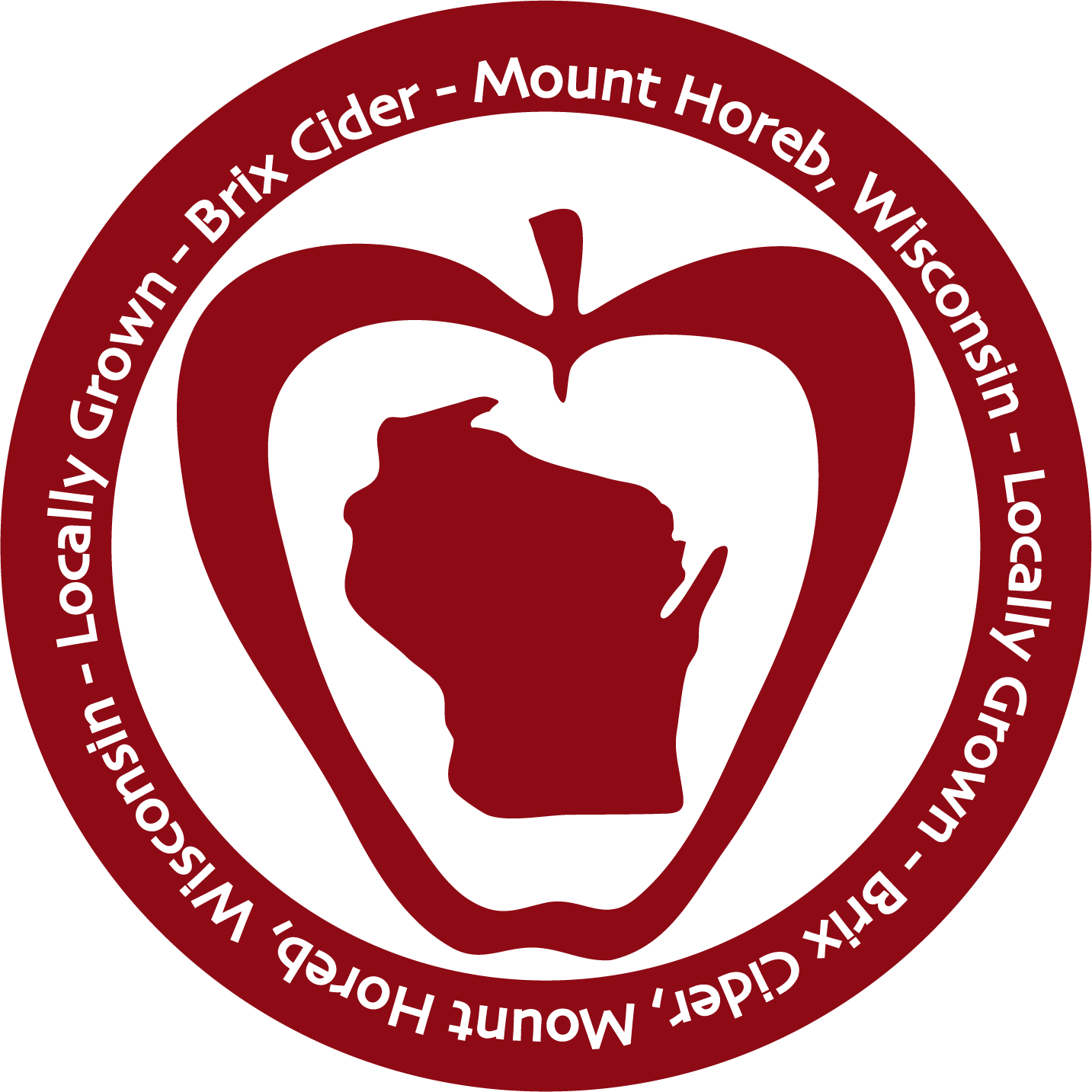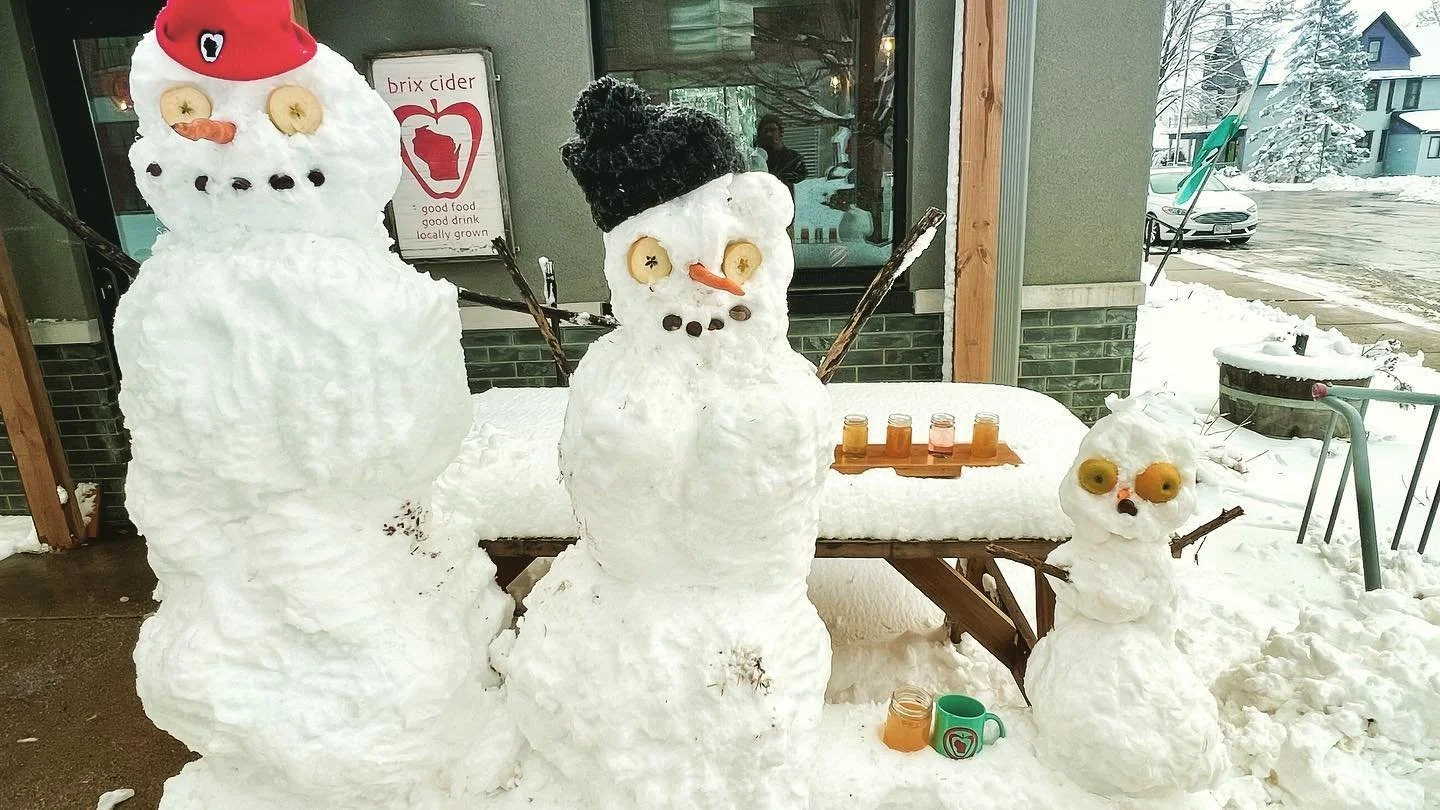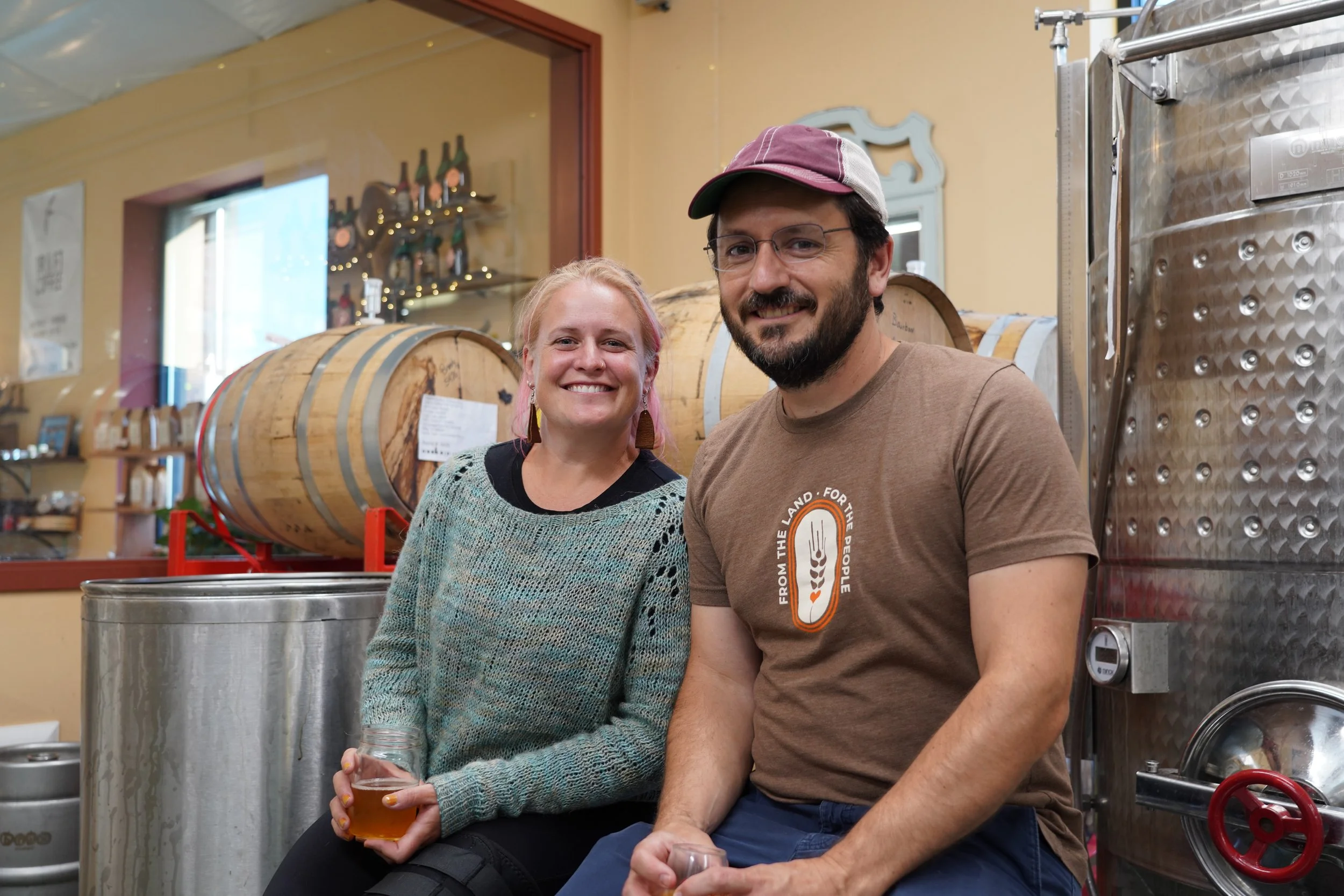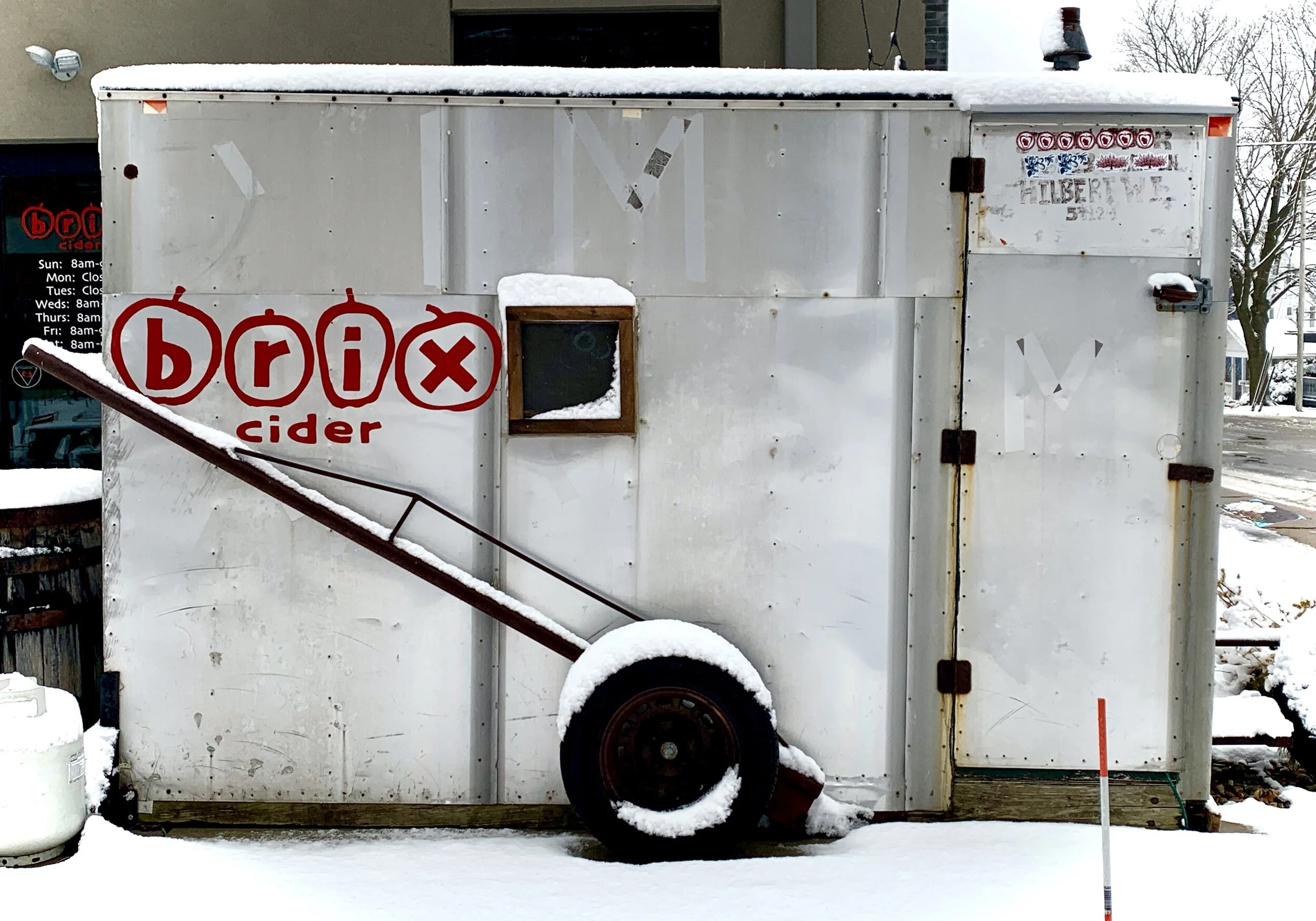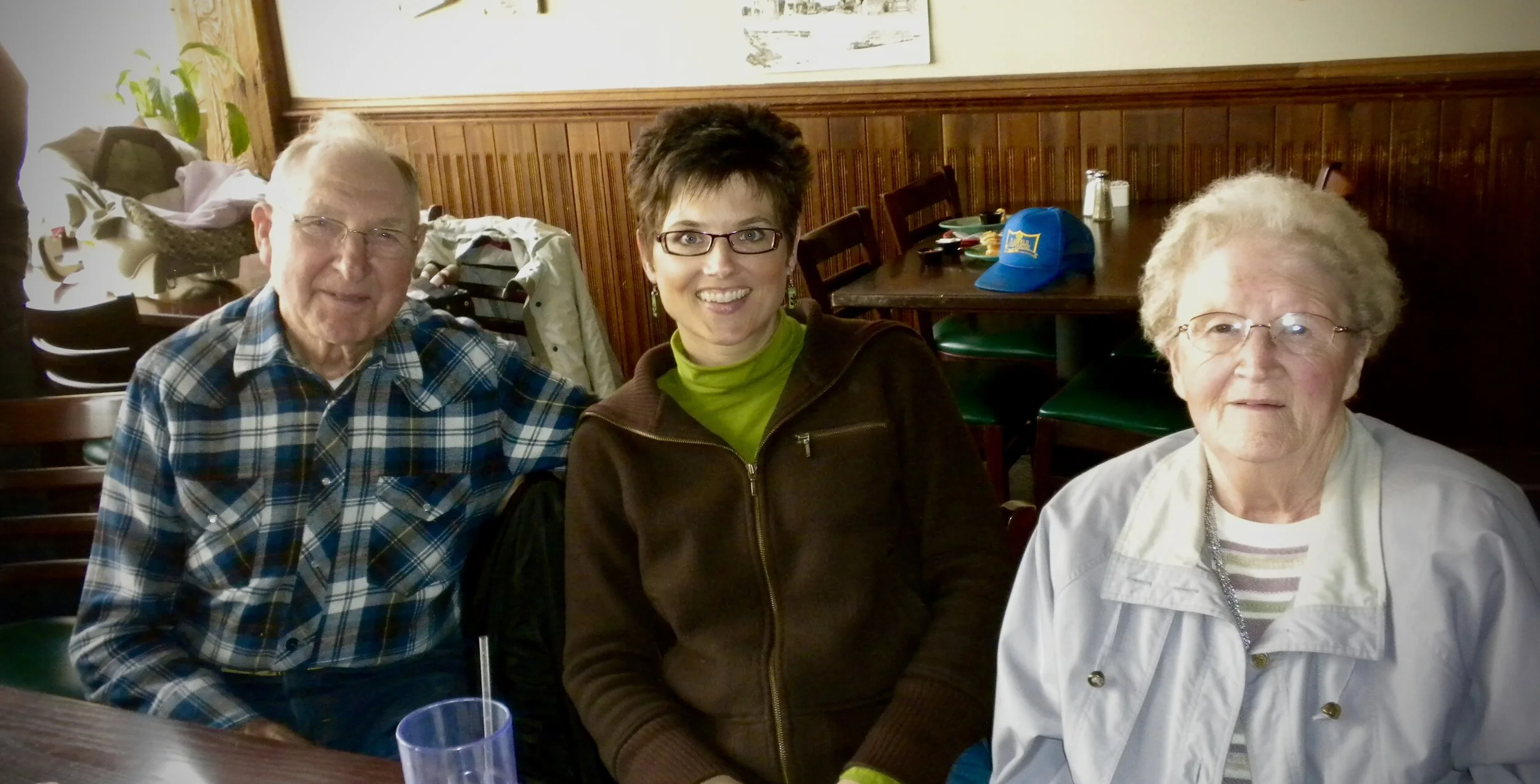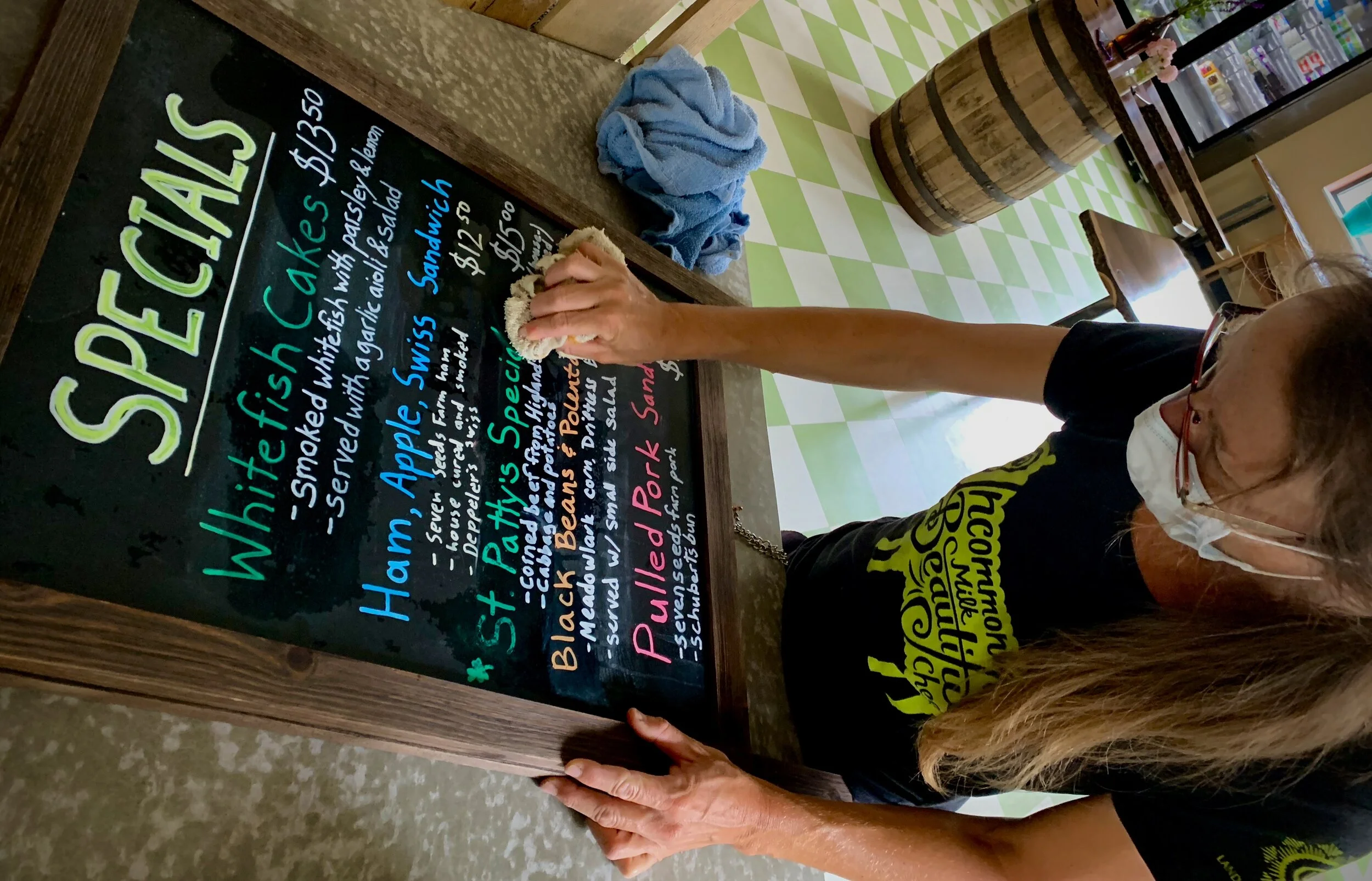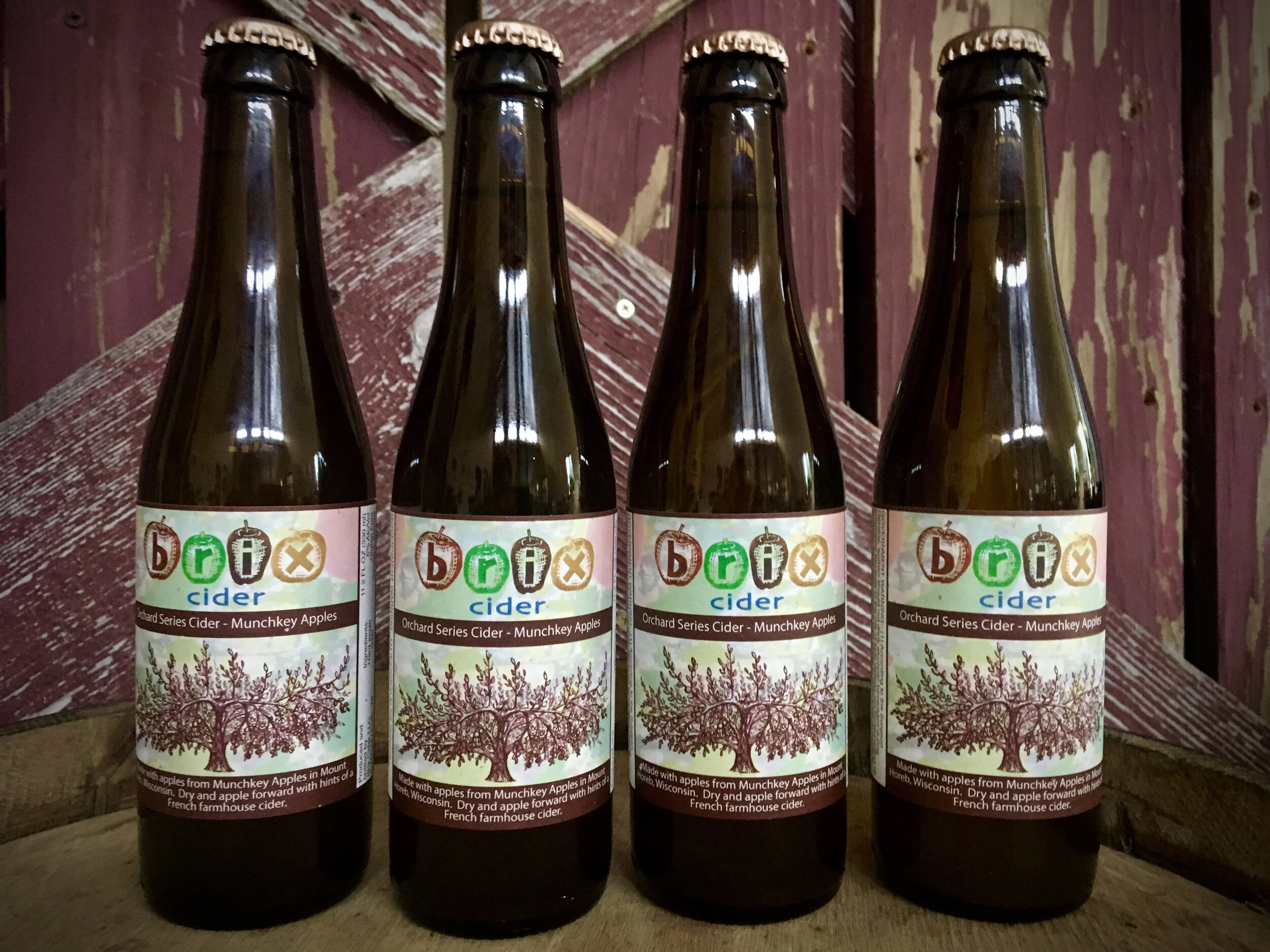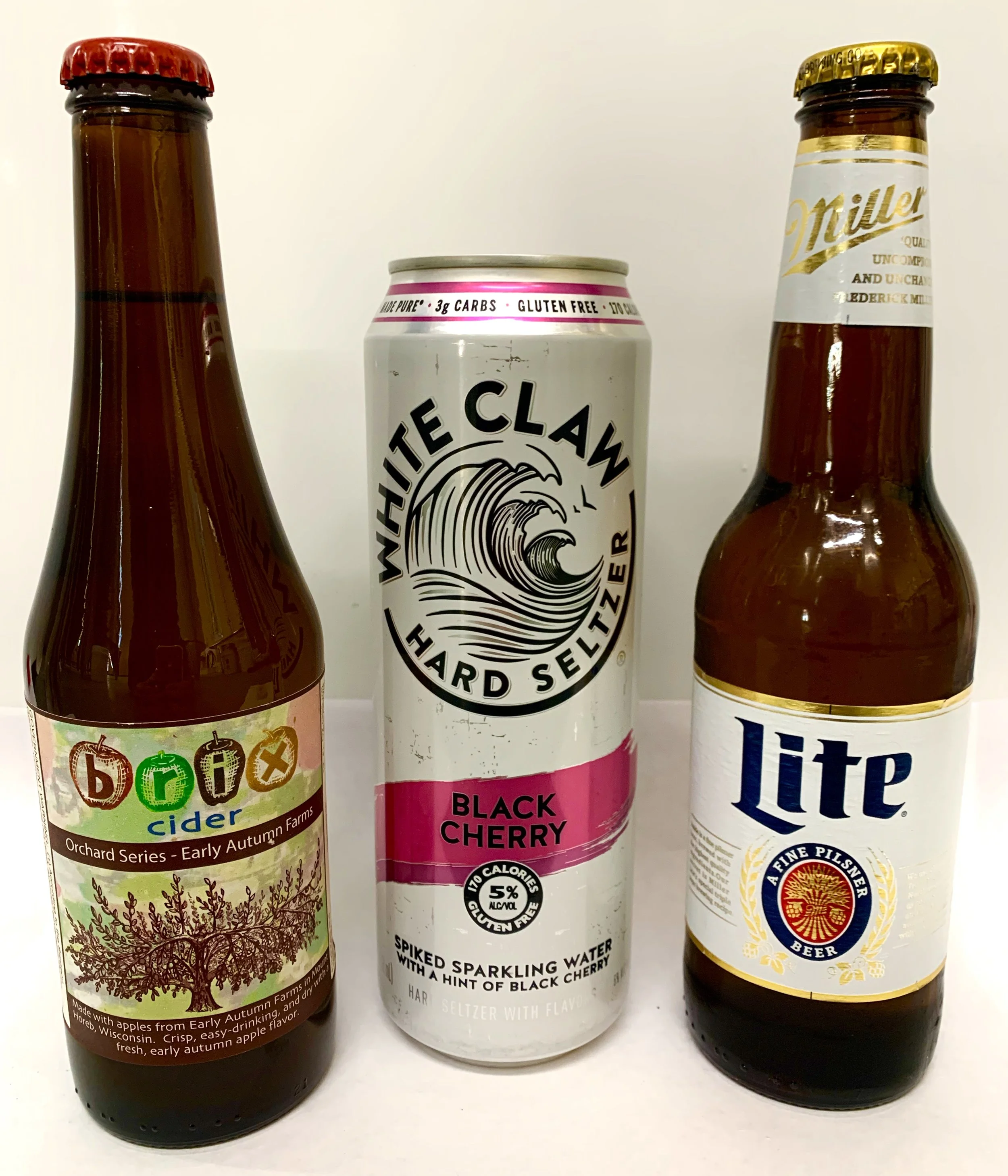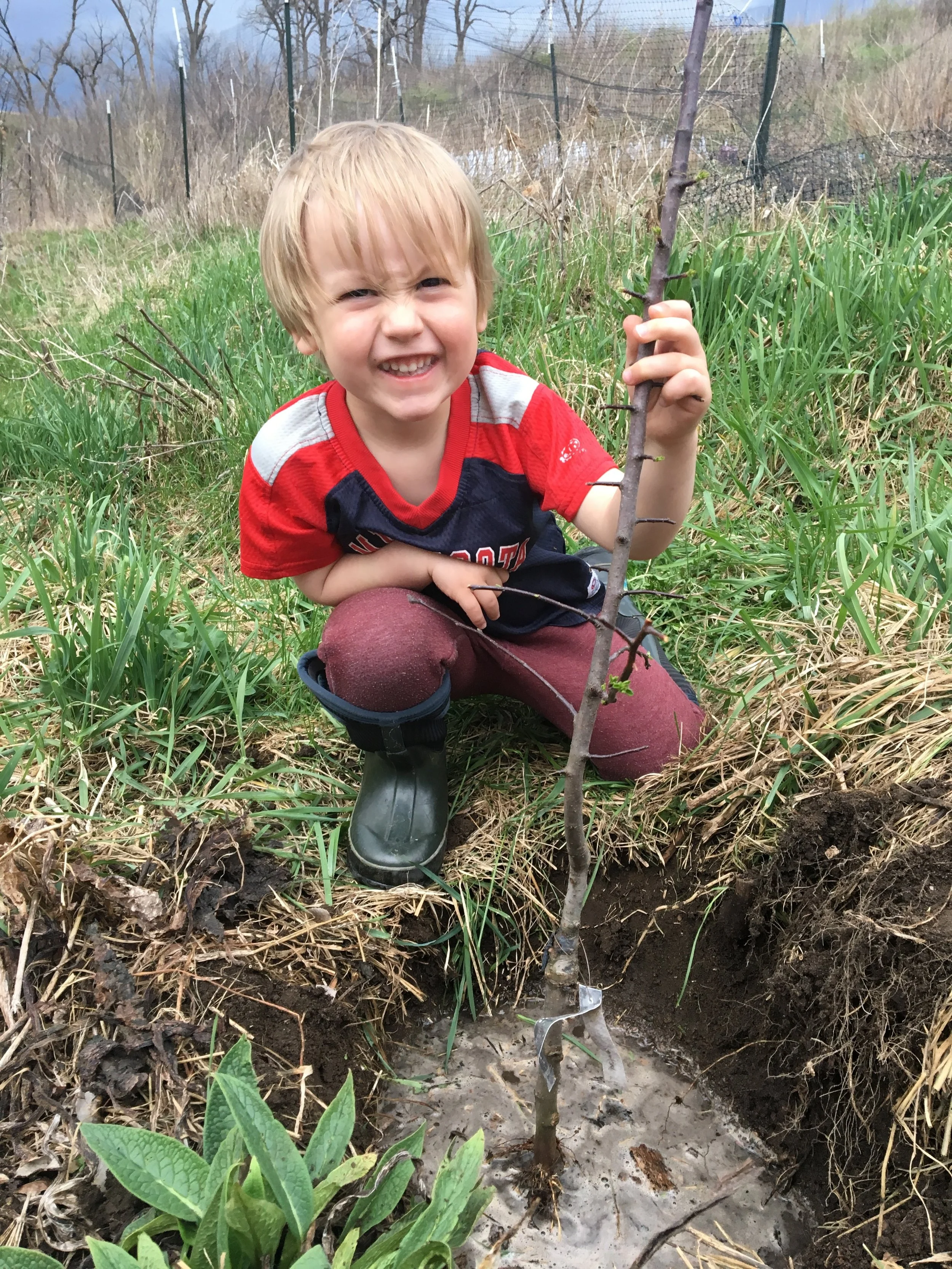Interview series: MATT ON THE ENERGY OF UNCERTAINTY
The BRIX PROJECT interview series is a collection of conversations with the leaders of this three-year USDA-funded grant project.
The BRIX PROJECT project shines a light on the power that partnerships between farms and restaurants have to shape the local economy. Brix is working with UW Madison for food sourcing analysis and outreach that can be implemented in other microregions striving for shorter supply chains.
Jonnah: Brix Project Media Producer
Matt, Brix is centered around cider. Can you tell me about the history of how you became interested in cider making?
Matt: Brix Cider co-owner, Brix Project Director
We started making cider when Marie and I were just dating back in 2008. We were just kind of playing around and making different things. We've made cider and mead, and then eventually, beer and wines. But cider was the thing that we stumbled on that we really liked what we made, and we liked it better than any cider we found in stores. We liked that we could start with a raw ingredient, like apples, that we could get from a farm or that we could grow right here, and we didn't have to get it shipped in from who knows where. To us our cider had more soul and a little more character. We bought a little apple press and started making bigger batches and experimenting.
“We liked that we could start with a raw ingredient, like apples, that we could get from a farm or that we could grow right here, and we didn’t have to get it shipped in from who knows where. ”
Then we lived overseas for a couple of years and we were a little homesick. We dreamed up the idea of starting our own business and having an orchard when we got back. We didn't have enough money to start a great big orchard and the business at the same time. And the bank was never going to lend us the money to do that. So we came up with the idea we have now where we source from a bunch of orchards and make a commercial cider.
Jonnah
Can you take me back to 2020 when you were first hatching the Brix Project plan? What was going on with the Brix Cider and the restaurant and the world at that time? Under what conditions did you come up with this big grant project?
Matt
Yeah, the grant project. We were - gosh, we were just a couple months into the pandemic. As everybody knows, restaurants went through the wringer with the pandemic. We had to close down for a while. We actually closed down before most restaurants because we were just not feeling good about gathering people when so much was unknown. Overnight we came up with this idea to start delivering food, not like restaurant take-out food, but more ingredients that we sourced from our partner farms. We figured that people were going to be nervous about going to a grocery store, or going anywhere, in those first months of the pandemic. So we created this online sales system, and we delivered food around Mount Horeb, and surrounding communities. That kind of kept us afloat. We didn't know to what extent that online platform would last or when we would open the restaurant again.
In all of that uncertainty was when this grant project came together. But at the same time, part of why we were inspired to write the grant was the idea that maybe we could be a model of resilience. By working on a community scale with small farms, we can be a little more adaptable. We're not dependent on these big international supply chains that break down in emergency situations. So in a way, we saw the grant project as an opportunity to try to build from and continue to explore what we're doing as a model of resilience. It grew out of the uncertainty and asking ourselves how we can build this system where we work with a bunch of farms and support one another.
“By working on a community scale with small farms, we can be a little more adaptable, we’re not dependent on these big international supply chains that break down in emergency situations.”
April Prussia of Dorothy’s Range
Jonnah
We all saw what happened with national and global supply chains during the first year of the pandemic. This showed the strength of regional food systems but what ongoing issues are you seeing regional producers face?
Matt
We're in a place [Dane County] where I think local food systems are stronger than most places in the country. Yet, when I think about what people eat or when I peek in someone’s cart at the grocery store or when I go to another restaurant, I would say the vast majority of what I see still is not local. You go to most restaurants and who knows where that food is coming from? So what I see is that there are people who care about where the food comes from and who care about how it was raised. But the majority of people still really don't think about it and don't care. To me, the biggest issue is breaking through that barrier of trying to get people to care and make some conscious choices because they care.
Jonnah
How do you feel that your leadership as a restaurant and cidery owner is creating a solution or bringing awareness to what's unseen or unknown?
Hogs and chickens at Seven Seeds
Matt
Through the Brix Project we're doing a lot of storytelling, giving people more information. And by showing people and exposing people to things they don't know much about, we can create a new level of interest. As someone who has worked on farms, and has worked in agriculture for a lot of years, I take for granted the things that I do know, and sometimes I am surprised by the things people don’t know when it comes to food and agriculture. We’re really trying to bring people closer to their food system so that they can see both the beauty of it as well as the challenges. Through that exposure, we are also able to push other restaurants a little. If restaurants are going to talk the local sourcing talk, they need to walk the local walk. We want to raise the standard a bit. If you think about Brix, there are a handful of local farms for which we provide a significant portion of their income, and there are numerous other farms for which we provide a smaller, supplementary income. There are probably a dozen restaurants in our little town. Imagine if several of the other restaurants in town purchased the majority of their ingredients directly from local farms like we do, or imagine if a significant portion of restaurants in bigger towns and cities did the same. It would create so many new opportunities in agriculture. We would see more diverse landscapes, more diverse farms, more diverse farmers, and a local food culture that’s more rooted, vibrant, creative, and connected.
“What we are doing is exposing people to seasonality, both the bounty and the limitations of it.”
Jonnah
That is so true that local sourcing language isn’t just a marketing tool, it is a real economic framework that needs to support producers as much as the restaurant’s bottom line.
We're about a half of the way through the three year Brix Project program. What are you most excited about for the bigger impact of this entire body of events, stories, and community awareness?
“That is so true that local sourcing language isn’t just a marketing tool, it is a real economic framework that needs to support producers as much as the restaurant’s bottom line. ”
Matt
It's hard to tell our full story in little snippets, because we do a lot of different things–so I am excited to have all the films together. When we have the whole series of films showing several of the places where things are coming from I think this larger concept of local sourcing will tie together. Already people are starting to realize where our food is coming from, and that’s great.
I'm hoping that the intention we put into sourcing and making great food and drink continues to grow in ways that we haven't even foreseen yet.
Matt pouring cider
